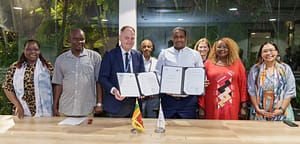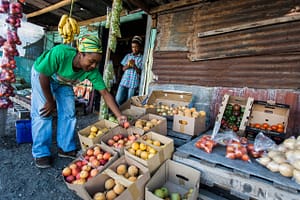Overcoming barriers to building the circular bioeconomy in city region food systems.
CRFS Knowledge Exchange Webinar: The Hub participated in the CRFS Knowledge Exchange Webinar Series organized by FAO, RUAF, and the CGIAR Resilient Cities Initiative on March 27, 2024. Our coordinator delivered a presentation on “Multi-stakeholder Platforms for Promoting Innovations in the Circular Bioeconomy, highlighting our Hub and its work as…








